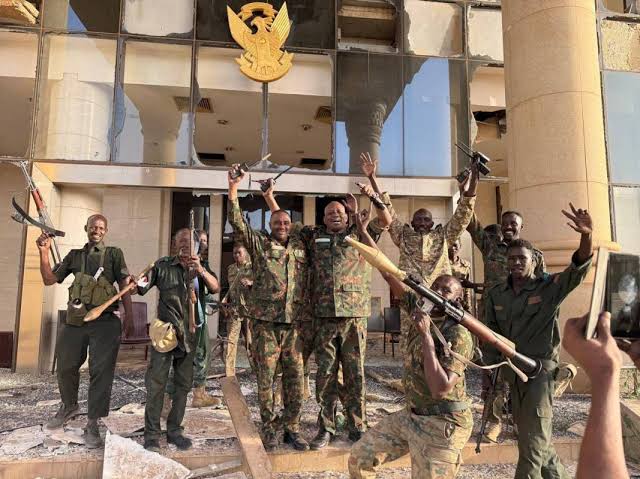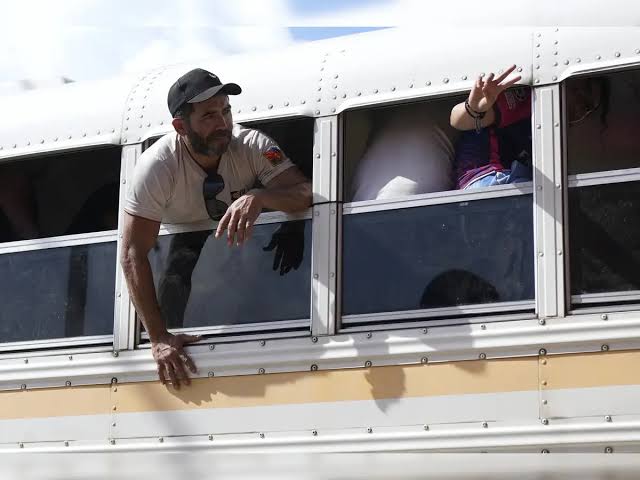On Friday, the Sudanese army announced that it had taken complete control of the presidential palace located in downtown Khartoum, marking a significant advancement in the ongoing two-year conflict with a rival armed faction that poses a threat to the country’s unity.
Historically, the army has faced challenges but has recently regained ground, reclaiming territory from the paramilitary Rapid Support Forces (RSF) in central Sudan.
The RSF has strengthened its hold in the western regions, solidifying battle lines and pushing Sudan closer to a de facto division. They are establishing a parallel government in the territories they control, although this is unlikely to gain broad international recognition.
In response to the army’s announcement, the RSF claimed later on Friday that they remained near the palace and had launched an assault that resulted in the deaths of numerous army personnel.
According to army sources, RSF fighters were positioned approximately 400 meters away. They reported that army forces had been targeted by a drone strike, which resulted in several casualties, including three journalists from state television.
The RSF had swiftly taken control of the presidential palace and the rest of Khartoum when hostilities erupted in April 2023, following disputes over the integration of paramilitary forces into the national army.
The army released videos showing soldiers celebrating on the palace grounds, with shattered glass windows and walls marked by bullet impacts. Images depicted the exterior of the newly built palace damaged by explosions.
Many Sudanese citizens expressed their support for the army’s claim of control over the palace.
“The liberation of the palace is the best news I’ve heard since the war began, as it signifies the army’s potential to regain control over the rest of Khartoum,” stated 55-year-old resident Mohamed Ibrahim.
“We long for safety and a life free from fear and hunger,” he added.
On Thursday evening, the RSF reported that it had captured a crucial military base from the army in North Darfur, a region located in the western part of the country.
GUNFIRE IN KHARTOUM
On Friday, sporadic gunfire echoed through Khartoum, with expectations of intense clashes as the army aims to encircle the Rapid Support Forces (RSF), which continues to control significant areas south of the palace.
The army declared, “We are advancing on all fronts until we achieve total victory by purging every part of our nation from the scourge of this militia and its allies.”
Earlier this week, RSF leader Mohamed Hamdan Dagalo, commonly known as Hemedti, had ordered his troops to maintain their hold on the palace.
While the RSF still maintains a presence in Khartoum, its grip is weaker than it has been since the onset of the conflict, indicating that the RSF may soon be entirely expelled, according to Ahmed Soliman, a senior research fellow at Chatham House.
He further noted that the army is likely to persist in its military efforts in the west, resulting in Sudan facing a “divided and contested reality.”
The conflict began two years ago as the nation was on the verge of transitioning to democratic governance.
The army and RSF had initially united to remove Omar al-Bashir from power in 2019 and subsequently to displace civilian leadership.
However, tensions had long existed between them, as Bashir had cultivated Hemedti and the RSF, which originated from the janjaweed militias in Darfur, to serve as a counterbalance to the army led by career officer Abdel Fattah al-Burhan.




